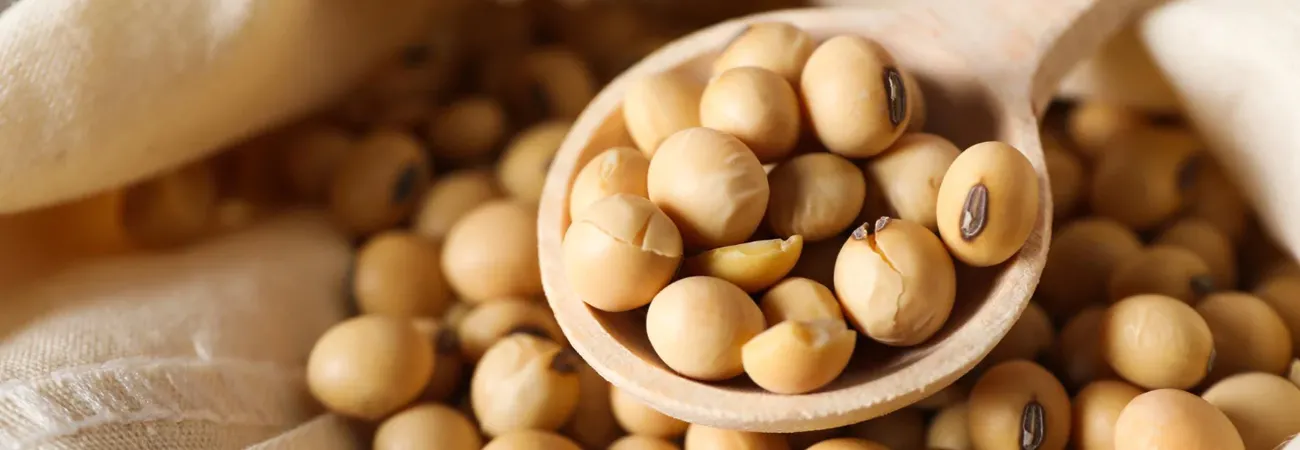i ECONOMY
Scientists at the University of Agriculture, Faisalabad are busy experimenting to enhance soybean cultivation in order to address the feed shortage faced by the poultry sector. In an interview with WealthPK, Vice Chancellor of UAF Dr Iqrar Ahmad said the poultry sector was facing multiple challenges of which feed shortage was the prime one. “Sensing this situation, we must strive to enhance local soybean cultivation to help the poultry industry flourish amid the rising challenges globally,” he said. He said the poultry sector had tremendous potential to lower the import bill of Pakistan and uplift the farming community. He said efforts were also needed to battle poultry diseases like avian influenza and Newcastle disease, and the people attached with this sector must follow the experts’ recommendations to control such diseases. He said Pakistan heavily relied on agriculture but it's a matter of grave concern that the country was spending about $1.5 billion annually on import of soybean. “The UAF is striving to enhance soybean cultivation in Pakistan, and its faculty recently introduced a new variety promising high yield in a short span of time.
In an experiment, as many as 100 farmers cultivated this variety and the production results turned out exceptional. Now the target has been set for 1,000 farmers this year, and the results are expected to be hopeful,” Dr Ahmed added. He said the UAF took the step to enhance soybean cultivation, as the farmers in the poultry sector faced feed related problems this year. He claimed that the prices of feed had increased due to the shortage of soybean. Prof Dr Farzana Rizvi, Dean of Faculty of Veterinary Sciences of the UAF, said the university officials were making dedicated efforts to improve the health of animals. She emphasized that two sectors – livestock and poultry – were playing a crucial role in the development of Pakistan, thus requiring attention and innovative approaches to address the emerging challenges. “We have to develop modern lines so that we can improve the financial condition of our farmers and bolster production of both sectors,” she said.
President of World Veterinary Association Pakistan Branch Dr Hanif Nazir said farmers, poultry experts and the industry were real stakeholders and they must sit together to find solution to such issues as soybean shortage and diseases. He said the UAF scientists had the capacity to provide solutions to the shortage of soybean, which was a critical ingredient of the poultry feed. “Without resolving this issue being faced by the poultry sector, we cannot tap the true potential of this sector,” he noted. Dr. Kashif Salemi said the university was organizing gatherings to ascertain the issues being confronted by the poultry sector. This approach, he said, could enable scientists to devise future strategies following the sector’s requirements. He emphasized that modern methods were crucial for further development of the poultry sector and uplifting the farmers. Dr Kashif said the farmers wanted to get rid of the high cost of feed, which was possible only by enhancing the cultivation of soybean.
He claimed that abundant availability of soybean in Pakistan will lead to a decrease in the poultry feed rates. Dr Ahmed stressed the need for coordination between the academia and industry so that both sectors could benefit from the modern trends and technology. Without adopting the latest technology, the farmers would not be in a position to effectively tackle the surging challenges, he pointed out. He said a knowledge-based economy guaranteed a bright future and agricultural scientists must strive to clinch the agricultural prosperity. “The scientists can effectively help poultry and agriculture sectors address the real issues faced by the farming community. Without developing modern lines in the agriculture sector, we can’t increase per-acre production, alleviate poverty, and ensure self-sufficiency,” he opined.
Credit: Independent News Pakistan (INP)









